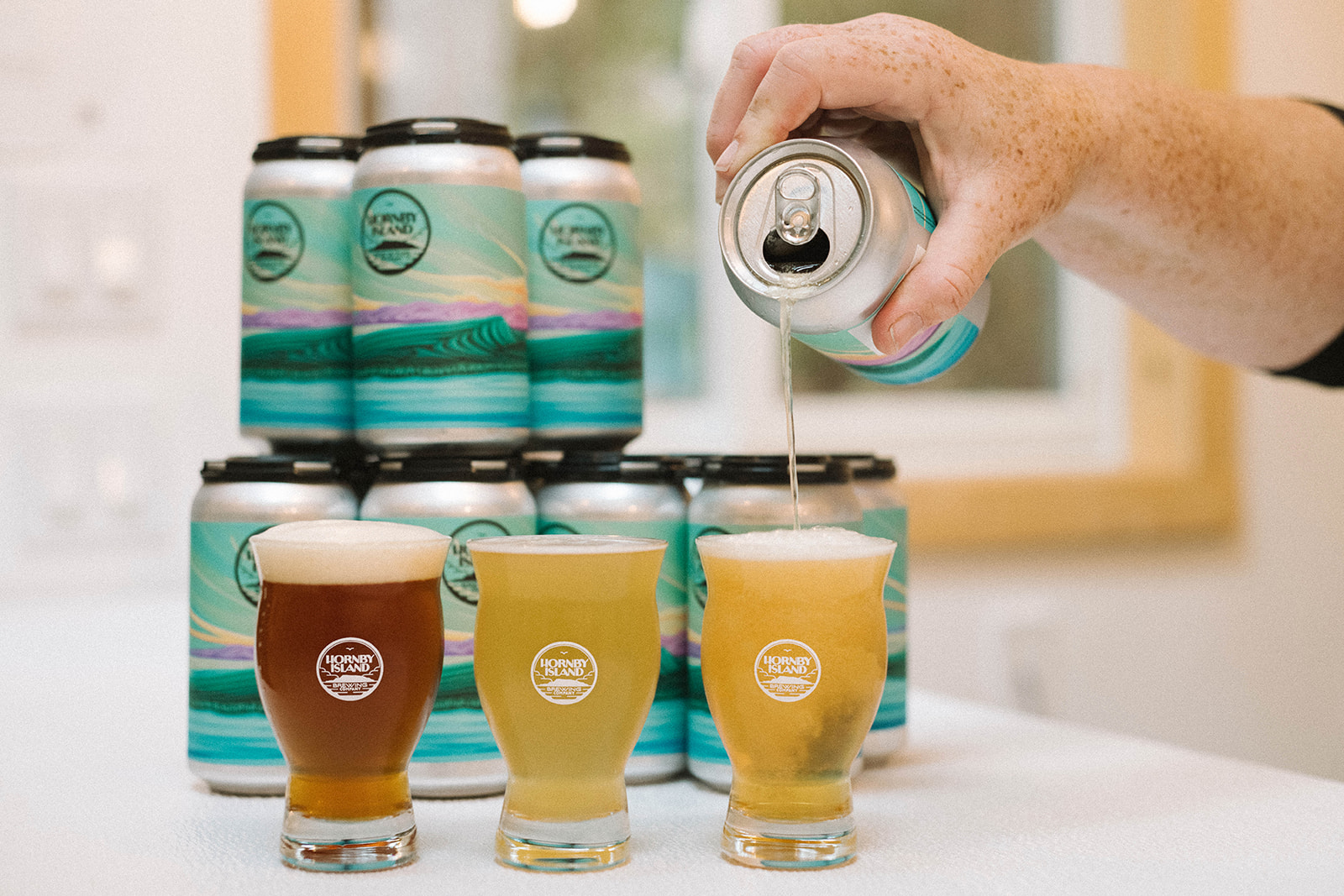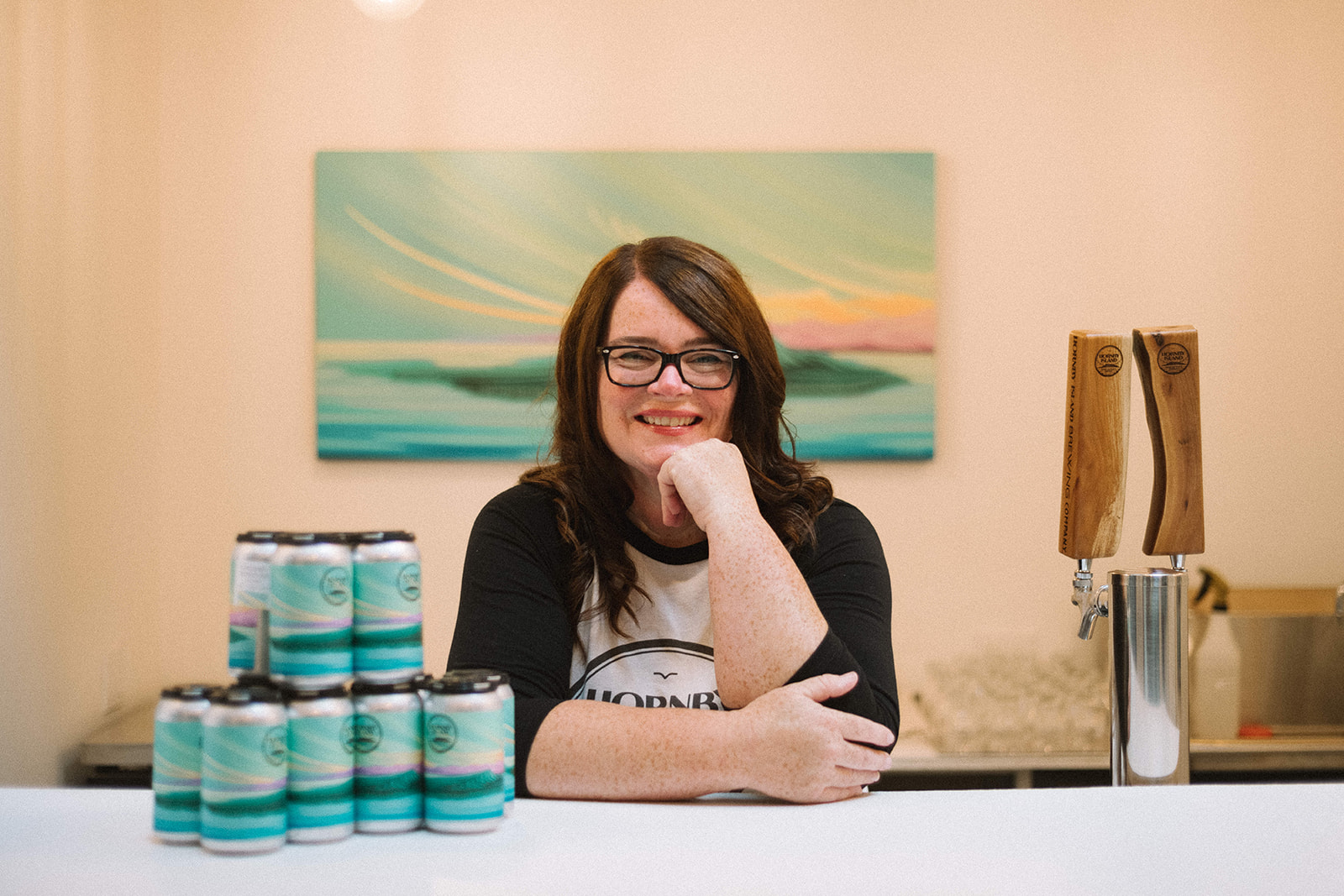“Standby. I think we have a call. Crew coming from Children’s. 45 minutes out.”
I’ve just passed through downtown Vancouver on my way to meet Bree Stotts—a woman who lives two divergent but overlapping lives—when I receive the text. I pull over to check my GPS. “I’m 20 minutes away. Could I watch you lift off?”
I pull up at the Helijet base at Vancouver International Airport’s South Terminal in time to join Stotts as she strides out to the helipad in a reflective safety vest, calmly preparing for her day job as a BC Air Ambulance pilot. Stotts and the infant transport team are en route to Powell River, B.C., to shuttle a baby in distress to BC Children’s Hospital in Vancouver.
As we wait for the ambulance, she lets me sit in her captain’s seat. It’s uncomfortable, like buckling into a dated amusement park ride. The cockpit is spotless and smells faintly of metal. It’s pragmatic and tough—buttons, dials, and meters. I can barely see over the dash, but I can easily make out the ground through the clear side door. That’s so Stotts can see where to land on hospital roofs, highways, schoolyards, or farmers’ fields. Her hazel eyes sparkle as she describes scooping up the sick and injured.
The team arrives on the tarmac, and Stotts completes the pre-flight inspection she’s performed thousands of times: the walk around, her co-pilot’s visual check of the controls, and the safety briefing to the paramedics. Equipment is double-checked. There are only four portable incubators capable of flying in a Helijet with all the gadgets needed—oxygen, batteries, and so forth. They also transport blood, AutoPulse resuscitation equipment for adults, and, occasionally, organs.
With retractable gear, the sleek Sikorsky S76 has a maximum flight speed of 155 knots, or 287 kilometres per hour. As I lean against the chain-link fence, the pressure in my lungs whumps as the helicopter’s blades churn up great chunks of air and toss them around during fire-up, taxi, and takeoff. Stotts, wearing a helmet and night-vision goggles, waves goodbye, the chopper fades into the orange western sky, and I say a little prayer for the baby.
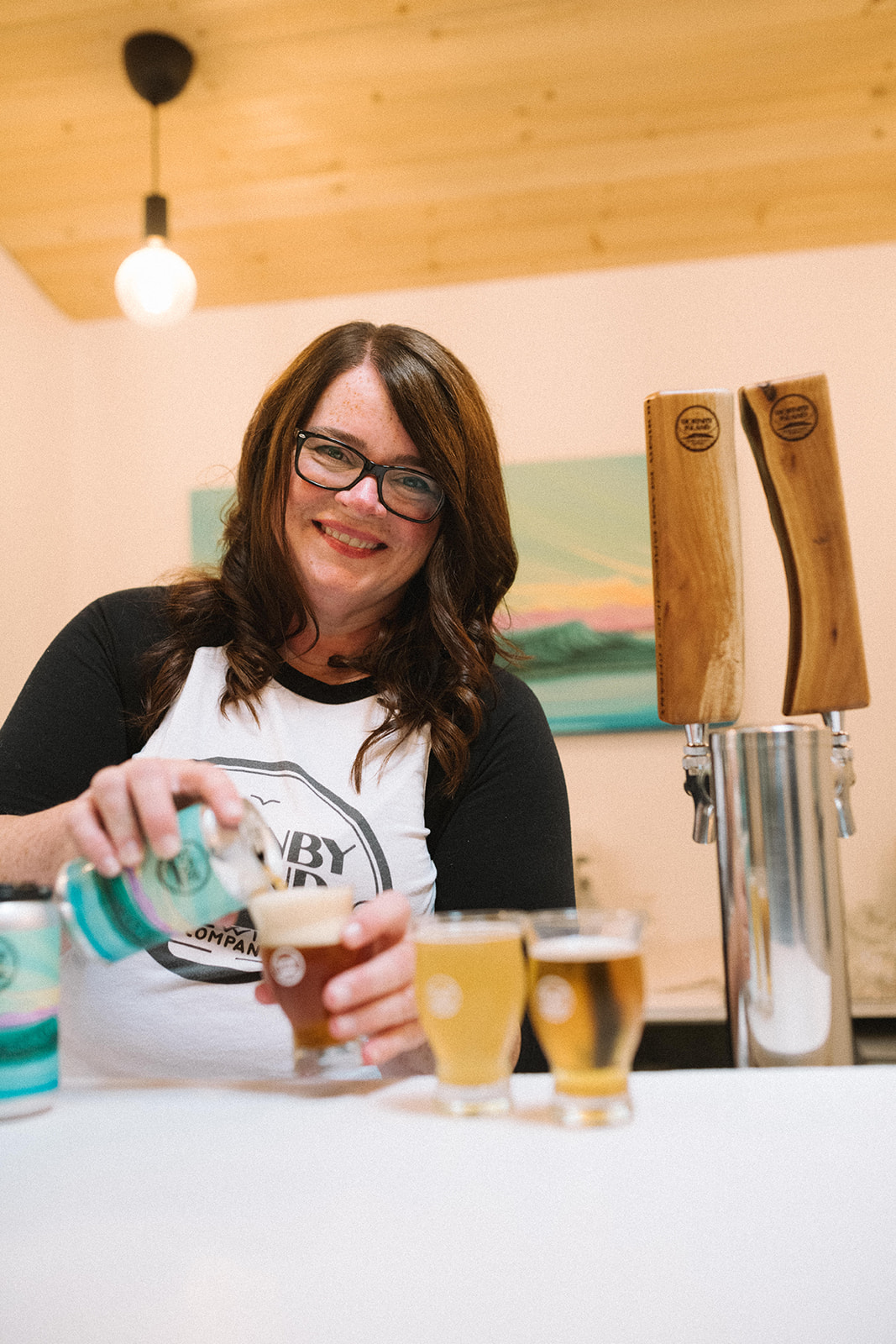
Two weeks later, we meet again under different circumstances. We are on Hornby Island, an idyllic Northern Gulf Island community with a population of about 1,200—quadrupling each summer. Here, Stotts and her husband, Ashley, have built their own microbrewery, the only one on the island.
On the front porch of the Stotts family’s 128-year-old farmhouse, she lifts her arm and gestures vaguely across the golden field of tall grass. “I’ve been touching down over there, just past the power lines, for 18 years.” Ten days each month, Stotts leaves her family to fly the air ambulance, which means that when someone on Hornby has a heart attack or breaks a hip, it could be Ashley’s pager that goes off (he’s a first responder and member of the volunteer fire department) and Bree who flies in to shuttle the patient to the closest emergency room.
Before her senior year of high school, Stotts spent the summer with her father on his 10-acre property on Malcolm Island, B.C., where she fell in love with the rugged coastline. At a beach bonfire, Stotts met a floatplane pilot who told her about flying out of nearby Port McNeil, a logging and fishing town. The idea of living and working rurally grabbed her: “Maybe I could become a floatplane pilot.” Stotts grins as she tells me, “So naive, 16 years old. Sure, why not!”
Back home, Stotts’ single mother ran with the idea. “The next thing I knew, she loaded me in the car, drove me to Pitt Meadows Airport, and booked an intro flight.” Since then, Stotts has flown over 5,000 hours in various aircraft and risen through the ranks from private to commercial pilot, then she gained the ATPL-H airline transport pilot licence specific to helicopters, a certification only nine women in Canada hold. “And I know eight of them.” Stotts’ freckled, ripe-apple cheeks rise again.
Initially, the Stotts bought a small summer getaway on Hornby in 2015. The beer-lovers noticed there was no suds production on the island (though there is cider, wine, vodka, mead, and some seriously funky kombucha) and decided to give brewing a shot. Ashley, an aircraft maintenance engineer, technical trainer, and science-lover, had already been making decent homebrew. The couple established a company in 2018 while he was still working a six-weeks-on, six-weeks-off rotation as an engineer in Thailand. His time at home was crammed with sourcing equipment, building the brewing facility and tasting room in an old woodshed on their property, and beginning the red-tape wrestling match to get a liquor licence in B.C.
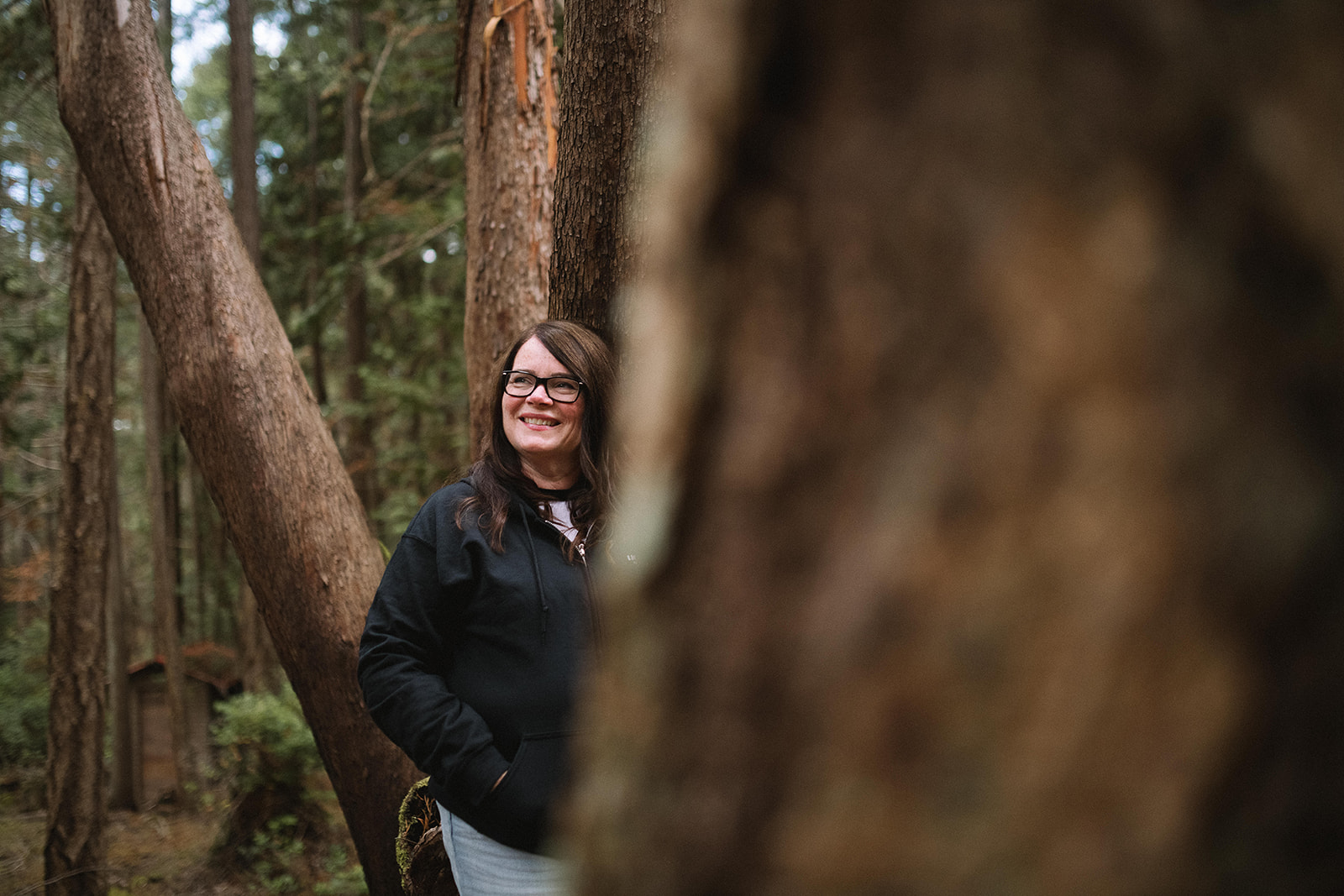
Over the next two years, still flying, fixing, and parenting, the couple brand-tested their recipes using borrowed tanks and licences. In 2021, with the brewing shed and paperwork more or less in line, they made their last contract beer, Exit 101, named for the highway offramp at Buckley Bay, where the ferry to Denman Island, a stepping stone to Hornby, departs. The beer’s name is a signpost: “This is our arrival. We’re turning off, we’re almost there.”
Anyone who’s been to Hornby knows that hanging a right at Exit 101 is the cue to exhale. “There’s an instant feeling you get when you arrive,” Stotts says. “Ahhh, time off. Relax. Green, beaches, water.” She’s right. I’ve been coming to Hornby for two decades with my family, and my blood pressure drops instantly when the ferry docks at Shingle Spit.
But chilling for a week in flip-flops and no bra is different from starting a microbrewery on a hard-to-reach Gulf Island. “Neither of us has any business background. I just applied common sense to everything, and my aviation background of filling out ticky boxes and being able to do government paperwork helped, because there’s been a lot.” And perhaps it was destiny—only after putting her name to the page do I realize that Bree is an anagram for Beer.
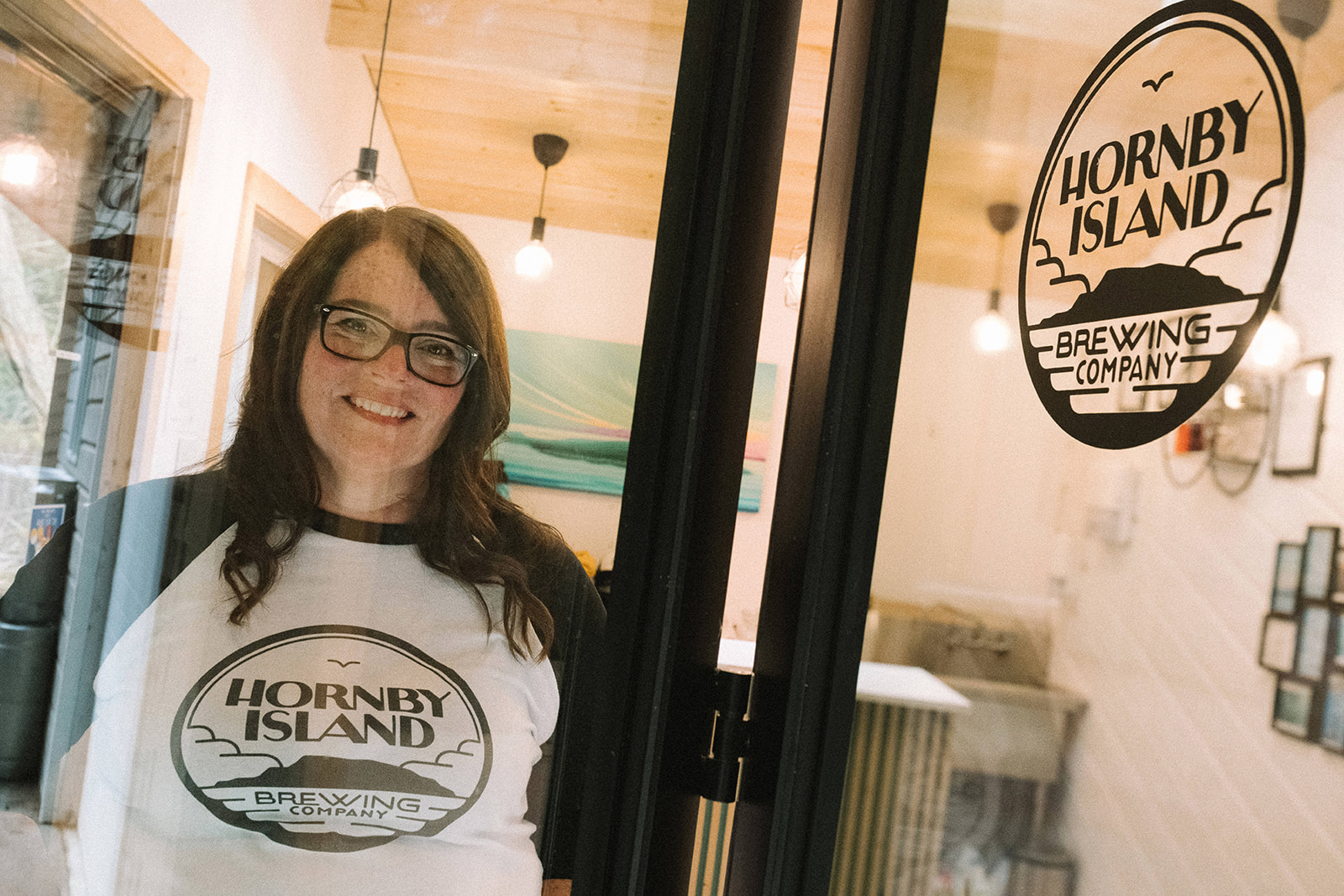
The transition to island life during COVID was tough on the couple’s two kids, both of whom now commute off-island for high school. And there has been some resistance from a small but vocal group of locals. On tiny Hornby, the question of water is fraught. The brewery has a 2,000-gallon cistern. “Even in peak summer months, we only use 500 gallons every six weeks,” Stotts says. By comparison, a family of four uses that same amount of water in a week. Hornby Island Brewing Company is a “nano” brewery—the smallest in B.C., in fact, operating its manufacturing space and tasting room in just 464 square feet. The Stotts intentionally keep both the batch sizes and the footprint small. They installed a one-of-a-kind wastewater system that sidestreams biomass to keep the groundwater safe, and the spent grain is fed to local livestock.
As they were preparing to open, the island’s health inspector informed them their well water, which they’d commercially licensed, would take perhaps two years to be approved as food-safe (beer had suddenly been designated food). Four years and several hundred thousand dollars in, the Stotts considered abandoning the project altogether. But, used to swimming upstream as a woman in aviation, Stotts found a solution: having water trucked, at great expense, from approved wells all over the island. “It is chlorine and UV treated, and triple filtered before it’s delivered—then we do it all again before making any beer.”
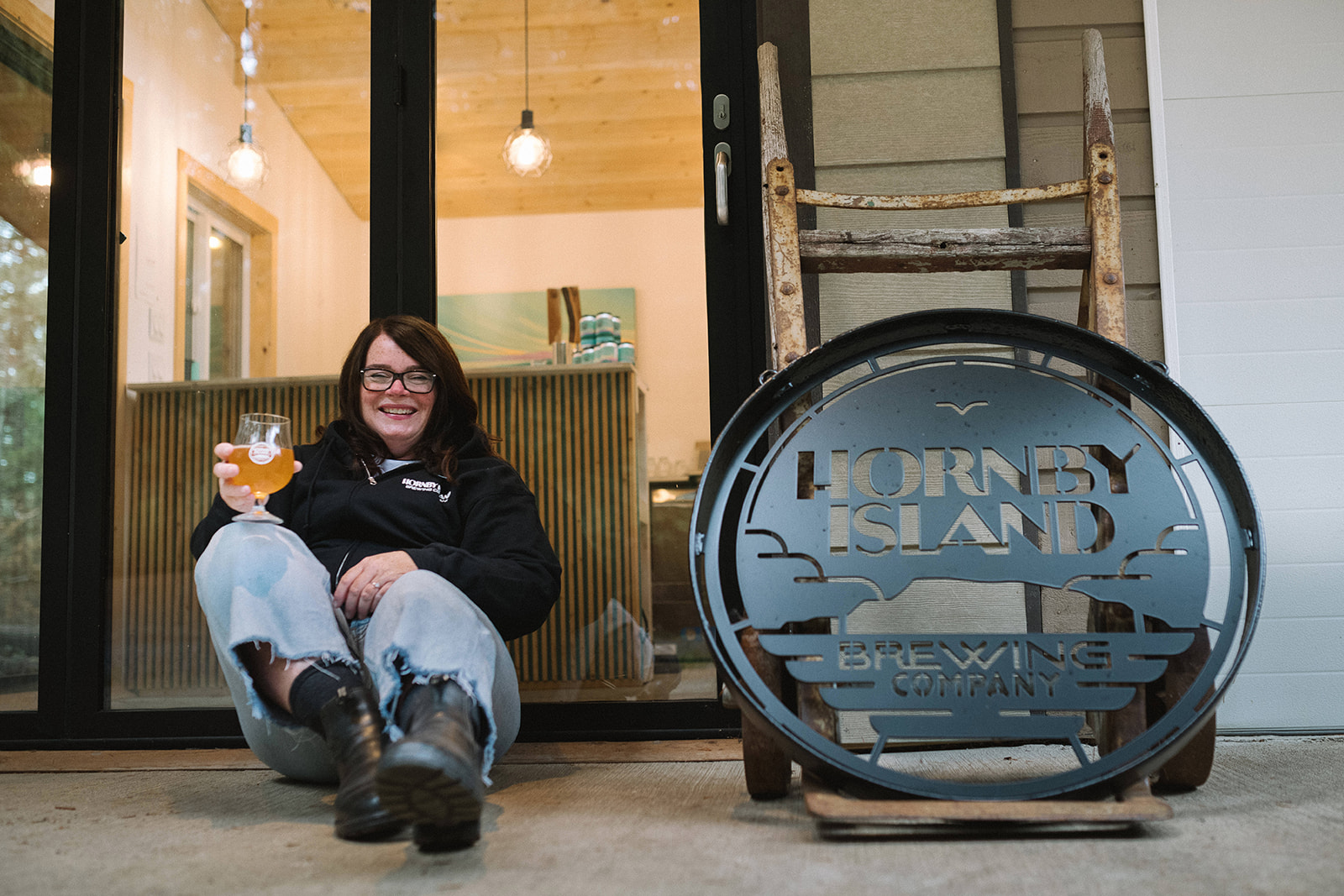
Against the advice of their lawyer—copyrighting a place name is tricky—it took five years to trademark Hornby Island Brewing Co., but Stotts insisted the name was an essential piece of their business. “Hornby is a place people know, love, and feel strongly about; it has legacy, family history—generations and generations coming to this island and caring about it very passionately. I go to a lot of Gulf Islands with my other job, and they don’t elicit the same emotion.”
With the exception of their VTOL Pale Ale, which is served exclusively on Helijet for customers flying between Vancouver, Victoria, and Nanaimo, the Stotts’ beer is only available at their tasting room and the twice-weekly farmers market. Along with lagers and pale ales, Ashley likes to get creative. Inspired by the couple’s aviation backgrounds, they recently launched Sikorsky S61, a potent English barleywine. A new line called Little Trib Hard Seltzer, made with organic ginger and lime, is named for the local clothing-optional beach.
With the purchase of their new property on what was once the historic Westview Farm, they also inherited a century-old orchard. Not wanting the crop to go to waste, last September the Stotts family arranged for the pickup of 2,600 pounds of heritage, no-spray apples and pears by friends at Twin Island Cider on Pender Island. Sitting on the porch after the truck was loaded, cider-makers Katie Selbee and Matthew Vasilev realized they recognized Stotts. She had flown to Saltspring Island to medevac Selbee and her newborn to a hospital in Victoria for an emergency post-birthing procedure. The child running around in the orchard munching on apples is a powerful reminder of Stotts’s skill.
Soon, another call will come in, and Stotts will climb into the captain’s seat to rescue another Hornby resident in trouble. Only now, when she hovers to land, she can see her own home, her and Ashley’s tasting room, and perhaps her future.
